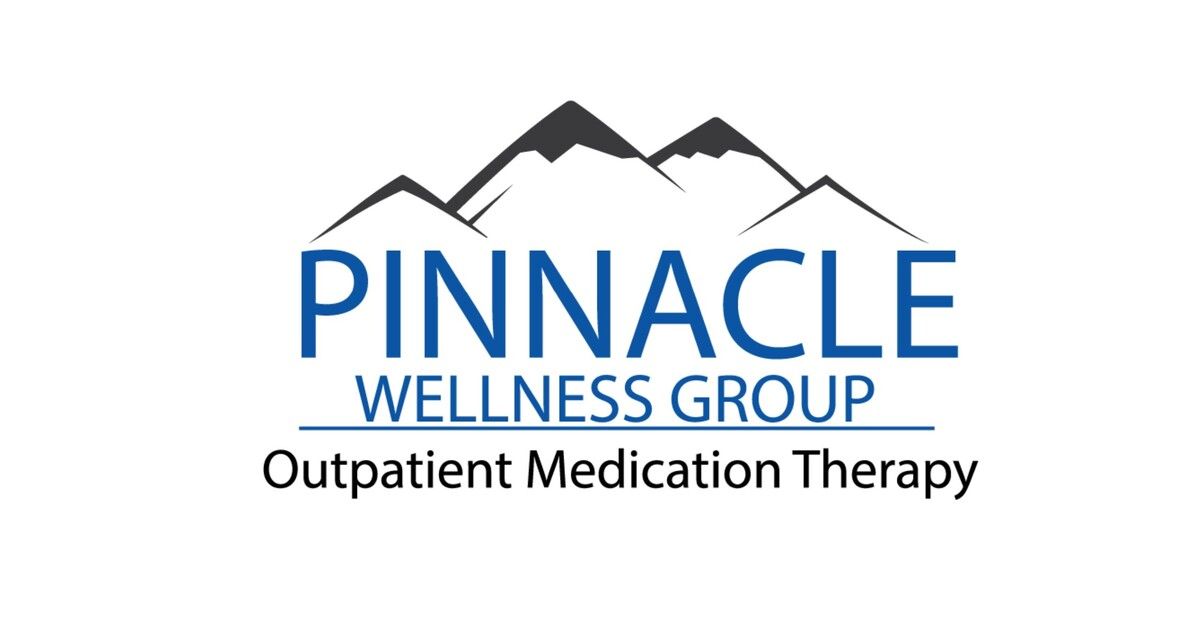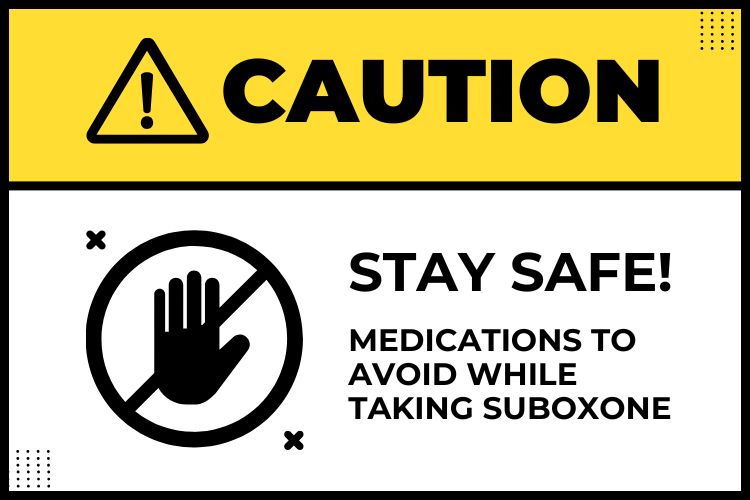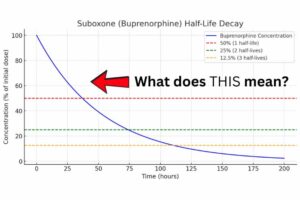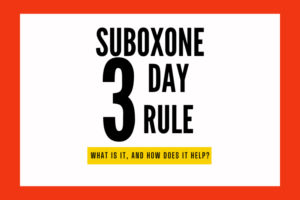Suboxone (a combination of buprenorphine and naloxone) is an essential medication in medication-assisted treatment (MAT) for individuals recovering from opioid use disorder. It serves as a lifeline for many, helping manage withdrawal symptoms and cravings while supporting long-term sobriety. However, to maximize the effectiveness and safety of Suboxone treatment, it’s crucial to understand what medications to avoid while taking Suboxone.
Drug interactions can pose serious health risks, including respiratory depression, sedation, or diminished effectiveness of Suboxone. This guide will detail the medications to avoid while taking Suboxone, offering insights into safer alternatives to help you or your loved ones stay on track in recovery. For expert support, Pinnacle Wellness Group in Port St. Lucie, Florida, is here to provide personalized care and guidance.
What Is Suboxone and How Does It Work?
Suboxone is a partial opioid agonist, meaning it binds to opioid receptors in the brain to reduce withdrawal symptoms and cravings. However, it also includes naloxone, which deters misuse by blocking the euphoric effects of opioids when taken improperly. While effective, Suboxone requires careful monitoring, as certain medications and substances can interfere with its efficacy or increase the risk of side effects.
Benzodiazepines: A Risky Combination
Benzodiazepines, often prescribed for anxiety, insomnia, or seizures, are among the most commonly encountered substances that interact negatively with Suboxone. Common examples include:
- Alprazolam (Xanax)
- Lorazepam (Ativan)
- Diazepam (Valium)
Why Avoid?
Both Suboxone and benzodiazepines are central nervous system depressants. When combined, they can amplify sedation and significantly increase the risk of respiratory depression, which can be life-threatening.
Safer Alternatives
If anxiety or insomnia is a concern, non-benzodiazepine treatments may be a better choice. Behavioral therapy, mindfulness practices, or safer medications like hydroxyzine can be discussed with your doctor.
Why Alcohol and Suboxone Don’t Mix
Why Avoid?
Alcohol is another substance that depresses the central nervous system. When taken with Suboxone, it can exacerbate side effects like extreme drowsiness, impaired motor coordination, and difficulty breathing, putting you at risk of dangerous consequences.
Tips to Stay Safe
- Opt for non-alcoholic drinks.
- Avoid social gatherings where alcohol is prevalent, especially in the early stages of recovery.
The Issue with Opioid Pain Medications
Opioid-based pain medications, such as hydrocodone (Vicodin), oxycodone (OxyContin, Percocet), and morphine, are not compatible with Suboxone.
Why Avoid?
Suboxone’s mechanism of action blocks the effects of other opioids, meaning these medications may not provide effective pain relief. Worse, taking them can induce withdrawal symptoms in individuals on Suboxone treatment.
Pain Management Alternatives
Discuss non-opioid pain relief options, such as acetaminophen, ibuprofen, physical therapy, or acupuncture, with your healthcare provider.
Antibiotics and Antifungals: What You Need to Know
Certain antibiotics (e.g., erythromycin) and antifungal medications (e.g., ketoconazole) can interfere with Suboxone metabolism.
Why Avoid?
These medications may increase Suboxone levels in the bloodstream, heightening side effects like sedation, nausea, or respiratory depression.
What to Do
Before starting any new prescription, ensure your doctor knows you are taking Suboxone. This transparency allows them to suggest alternative antibiotics or adjust dosages accordingly.
Antidepressants and Antipsychotics: Proceed with Caution
While some antidepressants, such as selective serotonin reuptake inhibitors (SSRIs) and serotonin-norepinephrine reuptake inhibitors (SNRIs), are generally safe with Suboxone, caution is still required.
Why Avoid Certain Medications?
Some antidepressants can amplify the sedative effects of Suboxone or lead to serotonin syndrome, a potentially life-threatening condition caused by excessive serotonin levels in the body.
Collaborate with Your Doctor
Work closely with your healthcare provider to develop a mental health treatment plan that prioritizes both safety and efficacy.
Sleep Aids and Suboxone: A Risky Mix
Sleep aids, including prescription medications like zolpidem (Ambien) and over-the-counter options with diphenhydramine (e.g., Benadryl), can cause complications.
Why Avoid?
These substances enhance sedation and increase the likelihood of respiratory depression when combined with Suboxone.
Safer Approaches
Focus on non-medication solutions for sleep, such as maintaining a regular sleep schedule, practicing relaxation techniques, and limiting screen time before bed.
Stimulants and Their Impact on Suboxone Treatment
Prescription stimulants like Adderall (amphetamines) and Ritalin (methylphenidate) may destabilize your recovery when taken with Suboxone.
Why Avoid?
Stimulants can counteract Suboxone’s calming effects, potentially triggering cravings or anxiety.
What to Do Instead
If you have ADHD or other conditions requiring stimulant medication, consult your doctor about alternative treatments or adjusted dosages.
Herbal Supplements and Over-the-Counter Medications to Avoid
Even seemingly harmless supplements or OTC medications can interfere with Suboxone treatment. Examples include:
- St. John’s Wort: Alters liver enzymes, potentially reducing Suboxone’s effectiveness.
- Cough medications containing dextromethorphan: May cause central nervous system depression.
Be Proactive
Before trying a supplement or OTC medication, consult your healthcare provider to ensure it’s safe to use alongside Suboxone.
Final Thoughts: Partnering with Pinnacle Wellness Group
Knowing what medications to avoid while taking Suboxone can feel overwhelming, but with the right support system, it doesn’t have to be. Managing these interactions is crucial to ensure your recovery remains on track, your treatment plan is effective, and your health is safeguarded.
At Pinnacle Wellness Group, we understand the unique challenges of recovery and offer compassionate, personalized care for individuals in Port St. Lucie, Florida. Our team is dedicated to helping you overcome obstacles and achieve lasting sobriety. Contact us today to learn more about how we can support your recovery journey!
FAQs
Alcohol depresses the central nervous system, and when mixed with Suboxone, it increases the risk of excessive sedation, impaired motor coordination, and respiratory depression.
Not all antidepressants are unsafe, but certain medications may amplify sedation or lead to serotonin syndrome. It’s vital to discuss options with your healthcare provider.
Opioid painkillers should be avoided, as Suboxone blocks their effects and can trigger withdrawal symptoms. Opt for non-opioid alternatives instead.
Both Suboxone and benzodiazepines depress the central nervous system, increasing the risk of dangerous side effects like respiratory depression.
Always inform your doctor that you’re taking Suboxone. They can suggest alternative antibiotics or adjust dosages to prevent negative interactions.
Yes, supplements like St. John’s Wort and certain OTC medications can interfere with Suboxone metabolism. Always consult your healthcare provider first.









